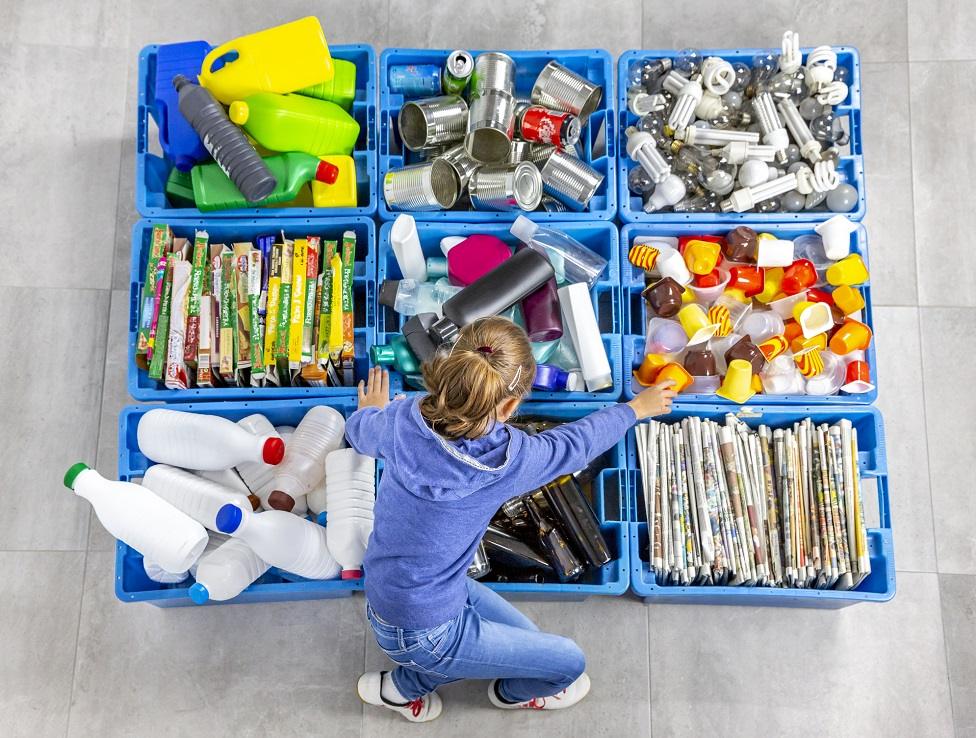Slight fall in Scotland's domestic recycling rate
- Published

Domestic recycling rates in Scotland have fallen for the first time since 2011, according to new statistics.
Official figures show that 44.7% of household waste was recycled in 2018, a year-on-year fall of 0.9%.
More plastic and glass is being recycled but there's been a big drop in rates for paper and cardboard which is still the material we recycle the most.
The total waste generated has reduced by 2% to 2.41 million tonnes with less being sent to landfill.
Iain Gulland, chief executive of Zero Waste Scotland, said the overall figures show that measures to tackle climate change are having an impact.
He added: "While recycling is hugely important, waste prevention has far greater benefits as most of the impacts from waste come not from waste management, but from producing the materials and products we discard in the first place.
"It has been a difficult year for recycling due to changes in global markets, especially for paper and plastics.
Why is recycling so complicated?
East Renfrewshire is still the best performing local authority with 66.2% of waste being recycled, although the figure is down on 2017.
West Lothian and Midlothian are the second and third best performing councils.
Shetland remains the worst but its recycling rate has risen from 8% to 10.5%.
Of the waste not recycled, 81% was incinerated with 13% being processed through composting or anaerobic digestion.
Single-use plastics
Environment Secretary Roseanna Cunningham said it was the second year in a row that Scotland recycled or composted more than it threw away to landfill.
"In making this progress, we continue to comfortably exceed the EU target set for 2020 relating to biodegradable municipal waste," she added.
"I recognise that there is more for us all to do - not least in order to respond to the global climate emergency," she said.
"We have succeeded in reducing emissions caused by household waste by the equivalent of more than one million tonnes of CO2 since 2011, and this year's programme for government commits to a range of further measures to reduce single-use plastics and waste, and encourage a culture of re-use and recycling."